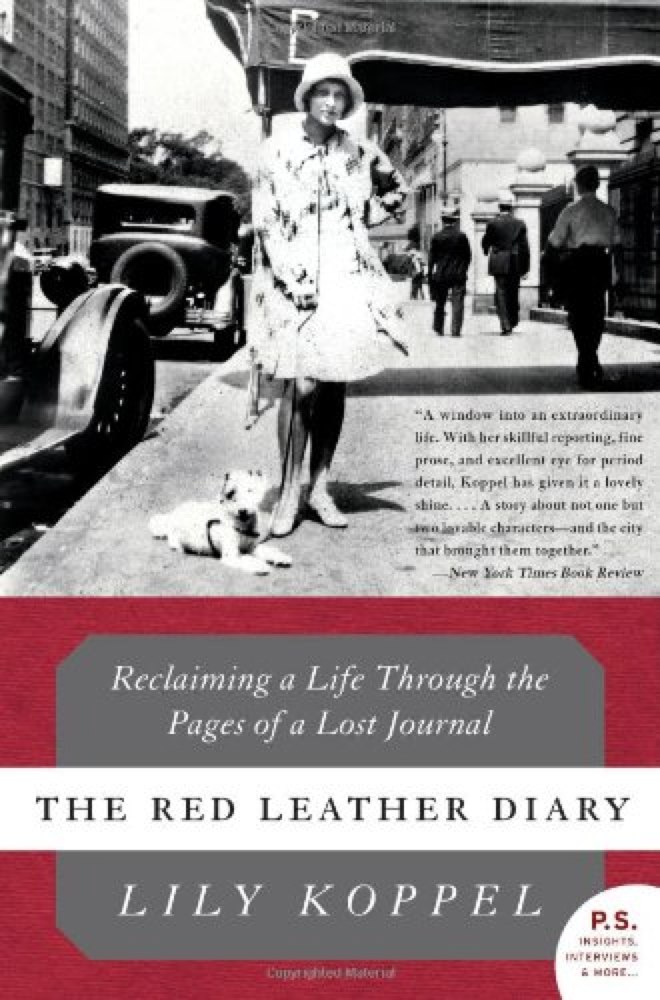
Lily Koppel, a celebrity reporter for the New York Times, moved into a room on Riverside Drive just as building management was cleaning out the storage room. In a dumpster, she finds old hatboxes and suitcases and a battered leather diary that Florence Wolfson has kept from 1929 to 1934. At the start of the diary, Florence is fourteen and a high school student; at the end, she’s graduated from college and toured Europe and started to host literary parties that attracted Delmore Schwartz, Erica Jong’s mother, and a host of New York poets.
Florence lives for love – boys or girls, she doesn’t much care which, though she wonders about that a lot. She lives for art. And she lives a long time: in 2009, it turns out she’s alive and well and moving back and forth between Florida and Connecticut, and she’s quite happy to flesh out the details from the diary.
It’s a limited account, to be sure. While Florence was editor of the Hunter Echo, her staff apparently rebelled and the revolution was only quieted with considerable difficulty. The problem may have been staff suspicion that Wolfson was a lesbian, or resentment that she was too butch, or conceivably resistance to what they perceived as their editor’s sexual exploitation of the staff. In the nature of the thing, the details are unrecoverable, but all the interest of the episode really lies in the details. Yet this is fascinating social history, told by a young rebel who was determined to be unconventional just like her friends.